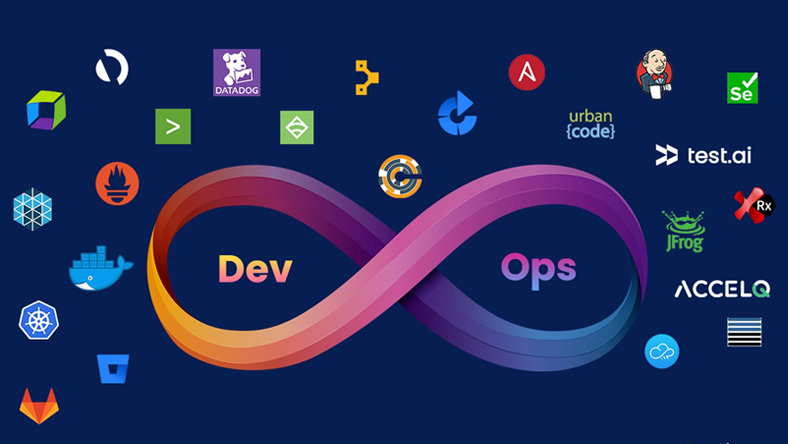DevOps with GCP

Contact Form
Overview
Students Prerequisites
Course Curriculum
Duration of the Course
Instructor Profile
Overview
DevOps with GCP leverages Google Cloud Platform’s suite of tools to integrate development and operations. It emphasizes automation, continuous integration, and continuous delivery (CI/CD) for efficient software development and deployment. GCP offers scalable infrastructure, monitoring, and management services, ensuring robust performance and security across global data centers.
Students Prerequisites
- Basic knowledge of scripting or programming languages is beneficial.
- Familiarity with basic networking and Google Cloud Platform (GCP) services will enhance the learning experience in DevOps with GCP.
Course Curriculum
Module 1: Introduction to DevOps and GCP
- What is DevOps?
- Key Principles and Practices
- Benefits of DevOps in Cloud Environments
- Overview of Google Cloud Platform (GCP)
- Key GCP Services for DevOps
- GCP vs. AWS vs. Azure
- Setting Up Google Cloud
- Creating a Free GCP Account
- Navigating the GCP Console
- Introduction to gcloud CLI
Module 2: Version Control and GCP Source Repositories
- Version Control Basics
- Git Essentials (Branches, Merges, Pull Requests)
- Introduction to GCP Source Repositories
- Setting Up Private Git Repositories
- Integrating with GitHub or Bitbucket
- Best Practices for Code Management
- Branching Strategies
- Code Reviews and Collaboration
Module 3: Continuous Integration (CI) with Cloud Build
- Introduction to Cloud Build
- What is Cloud Build?
- Advantages of Serverless CI/CD
- Setting Up Continuous Integration
- Writing Cloud Build Configuration Files (YAML)
- Automating Builds for Various Languages (Java, Python, Node.js)
- Integrating with GCP Source Repositories
- Triggering Builds Automatically on Commits
- Code Quality Tools
- Static Code Analysis with SonarQube
- Automating Unit and Integration Tests
Module 4: Continuous Deployment (CD) with GCP
- Introduction to Continuous Deployment
- CD Pipelines and Deployment Strategies
- Deploying Applications with GCP
- Deploying to Google Kubernetes Engine (GKE)
- Deploying to App Engine and Cloud Run
- Multi-Environment Deployments
- Staging, Testing, and Production Pipelines
- Blue-Green and Canary Deployments
- Implementing Traffic Splitting in Cloud Run and App Engine
Module 5: Infrastructure as Code (IaC)
- Introduction to IaC
- Benefits and Tools
- Google Cloud Deployment Manager
- Writing Configuration Files for Resource Management
- Automating Deployments Using Templates
- Terraform on GCP
- Setting Up Terraform with GCP
- Creating and Managing Resources (VMs, Networks, Databases)
- Using Terraform Modules for Reusability
Module 6: Containerization and Orchestration
- Introduction to Containers
- Docker Basics: Images, Containers, and Docker Compose
- Google Kubernetes Engine (GKE)
- Setting Up and Managing GKE Clusters
- Deploying Applications to Kubernetes with Helm Charts
- Google Container Registry (GCR)
- Building and Storing Docker Images
- Integrating GCR with CI/CD Pipelines
Module 7: Monitoring and Logging with GCP
- Introduction to GCP Monitoring and Logging
- Benefits of Observability
- Google Cloud Operations Suite
- Setting Up Cloud Monitoring Dashboards
- Using Cloud Logging for Application Logs
- Alerting and Incident Management
- Integrating with Prometheus and Grafana
- Monitoring Kubernetes Workloads with Prometheus
Module 8: Security and Compliance
- Identity and Access Management (IAM)
- Setting Up Users, Roles, and Permissions
- Secrets Management
- Storing and Managing Secrets with Secret Manager
- GCP Security Tools
- Using Cloud Armor for DDoS Protection
- Securing Applications with Identity-Aware Proxy (IAP)
- Securing Pipelines
- Scanning Docker Images for Vulnerabilities
- Integrating Tools like Trivy or Clair
Module 9: Configuration Management
- Introduction to Configuration Management
- Role of Ansible, Chef, and Puppet in GCP
- Google Cloud Config Connector
- Managing GCP Resources as Kubernetes Custom Resources
- Using Ansible with GCP
- Automating Configuration Changes
- Writing Playbooks for GCP Resource Management
Module 10: Advanced DevOps Practices with GCP
- Scaling Applications
- Auto-Scaling with GKE, App Engine, and Compute Engine
- Serverless DevOps
- Automating Deployments with Cloud Functions
- Event-Driven Automation Using Pub/Sub
- Traffic Management
- Load Balancing with Google Cloud Load Balancer
- Managing Traffic Splitting Across Services
Module 11: Cost Management
- GCP Cost Management Tools
- Monitoring Costs with Cloud Billing
- Setting Budgets and Alerts
- Optimizing Infrastructure
- Best Practices for Cost-Efficient DevOps
- Using Preemptible VMs and Committed Use Discounts
Module 12: Capstone Projects
- Project 1: CI/CD Pipeline for Web Applications
- Set Up a Complete CI/CD Pipeline Using Cloud Build
- Deploy to GKE or App Engine
- Project 2: Infrastructure Management with Terraform
- Automate Deployment of Multi-Tier Applications
- Implement Auto-Scaling and Load Balancing
- Project 3: Monitoring and Alerting for Kubernetes Workloads
- Set Up Prometheus and Grafana for Monitoring GKE Clusters
- Configure Alerts for Application Failures
- Project 4: Secure and Compliant DevOps
- Use Secret Manager for Sensitive Information
- Implement IAM Policies and Secure Pipelines
Duration of the Course
40 Days (also available fast track course with short term duration)
- Flexible Schedules
- Live Online Training
Instructor Profile
- Training by highly experienced and certified professionals
- No slideshow (PPT) training, fully Hand-on training
- Interactive session with interview QA’s
- Real-time projects scenarios & Certification Help
- 24 X 7 Support
